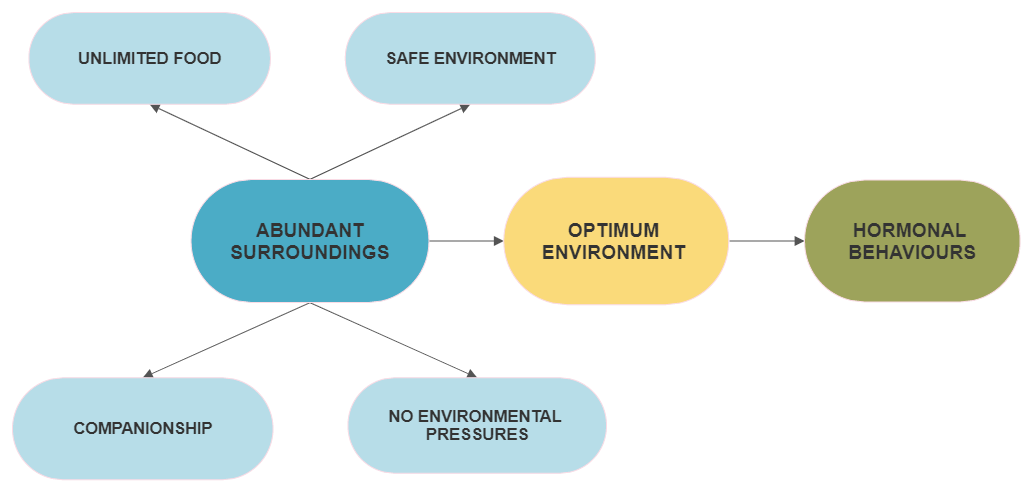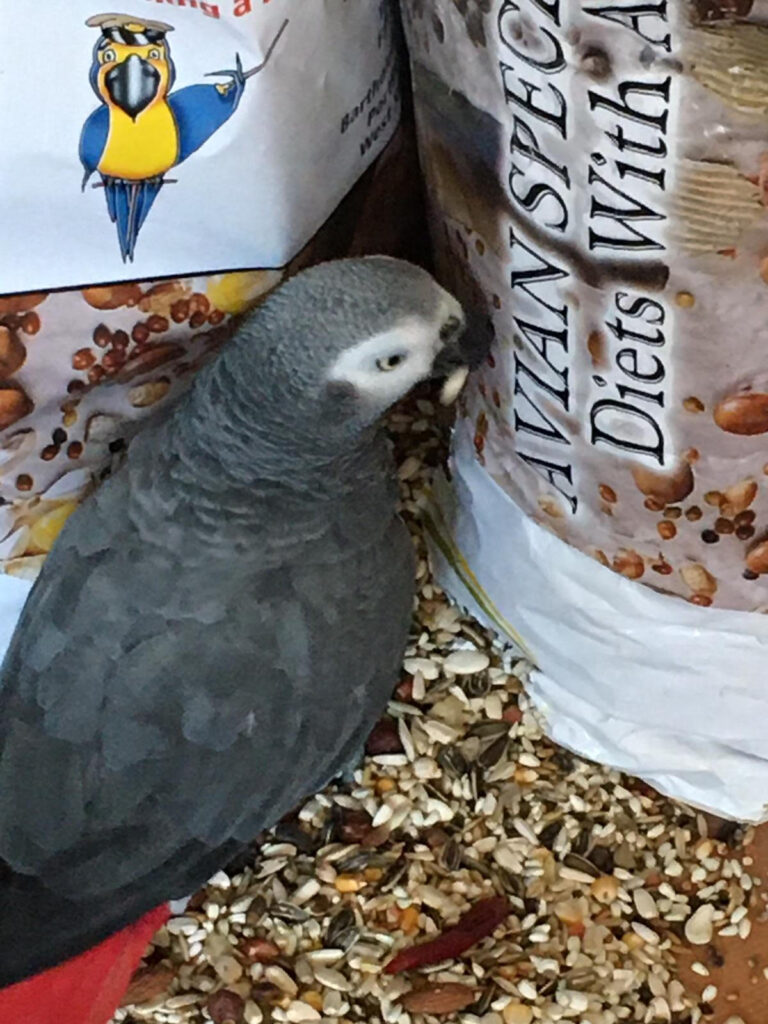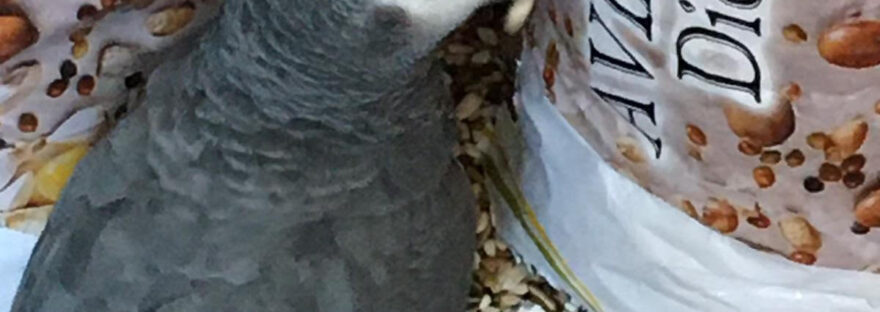When we talk about diet in regards to parrots it is often what to and what not to feed your parrot to prevent the deterioration of its physical health. This may include the prevention of common diseases such as fatty liver disease and hypervitaminosis, both caused by an abundance of nutrients. However what is often glossed over is how the diet you provide for your bird may be influencing chemical reactions in their body leading to the manifestation of hormonal behaviours.
The optimum environment
Scientiest have proven that an overabundance of food, foods high in fats and calories and too many food choices can all lead to an increase in production of reproductive hormones which consequently turn on your birds reproductive desires and lead to hormonal related behaviours.
In the wild, parrots’ hormones are ordinarily ‘turned off’ and it is only when an optimum environment presents itself that we see parrots mate.
In captivity we have our parrots in surroundings of abundance with unlimited food, a safe environment, bonded owners and physical contact that is often misleading. In addition, without having the environmental pressures seen in the wild such as predators, poor food supply and changing conditions, their reproductive desires are left unchecked and the birds are constantly ‘turned on’.
To put it simply….

How do I Know if my bird is hormonal?
Hormonal behaviours present themselves in the form of:
- Intense-bonding
- Masturbation
- Egg-laying
- Paper shredding
- Cavity seeking (establishing a potential nesting spot)
- Loud vocalization
- Fierce territoriality
Why does it matter?
Owners at first may find some of these behaviours entertaining. However in time they can become increasingly difficult to manage. In the wild such behaviours only occur seasonally in times of optimal conditions to allow the continuation of the wild population. but in captivity these behaviours can go from being a natural seasonal expression to a daily occurrence.
When left unchecked these hormonal behaviours can become the cause of extremely degenerative health conditions that can become life threatening. These include complications in relation to ovulation such as:
- yolk embolus stroke
- yolk peritonitis
- egg binding
- cloacal prolapse
- chronic anaemia
and..
- skeletal bone changes
- degenerative changes of abdominal musculature and cloacal tone
- hepatic lipidosis
- hormonal stress induced feather plucking, feather barbering, feather loss and dermatitis.
N.B. These behaviours may also be linked to other environmental factors so a full assessment should be carried out by your avian veterinarian.
So…How exactly does this link in with diet?
As previously stated hormonal behaviours in the wild are associated with optimal conditions therefore providing your bird with an abundance of food throughout the day is communicating to your parrot that it is in an optimum environment for reproduction.
In the wild parrots will usually eat two meals a day, in the early morning and late afternoon. Rather than providing food all the time, regulated meal feeding in captivity is a solution that mimics feeding behaviours seen in the wild. Offering food in the early morning and late afternoon for a period of one or two hours then taken away, can prevents your parrot from having an over abundance of food and from self-selecting only its favourite food items offered throughout the day.
Meal-feeding will also prevent excessive amounts of waste as your parrot will be hungry come meal-time and eat the majority of what is provided. As a rule of thumb when it comes to the quantity of food offered your parrot should be eating between 10-15% of its body weight daily.
In addition, limiting the amount of high value foods incorporated into the birds daily diet such as fruits, seeds, nuts and wholegrains, while incorporating them into foraging activities allows the birds to expend the high levels of energy gained from these foods which are needed for reproduction, as well as, preventing the excessive storage of fats, simple carbohydrates and lipids in your birds body which will also turn on your birds reproductive desires.

What should I feed my bird?
Your bird should be fed a variety of fresh vegetables, grains, legumes and supplemented with a good quality pellet. Fruits, seeds and nuts should be reserved for foraging or training sessions. In the words of Pamela Clark “Never give a parrot a treat for no reason”.
For further information on the correct diet to feed your bird please refer to Birdline Member Pack- Section 2: Nutrition and Diet.
Further Reading
Diet and behaviour in hormonal parrots
https://blogpamelaclarkonline.com/tag/hormonal-parrot/
https://www.forthebirdsdvm.com/pages/hormonal-behavior-in-pet-birds-pt-1
http://avianmedicine.net/publication_cat/avian-medicine/
For more information on hormonal behaviours and how to manage them read our blog here.

